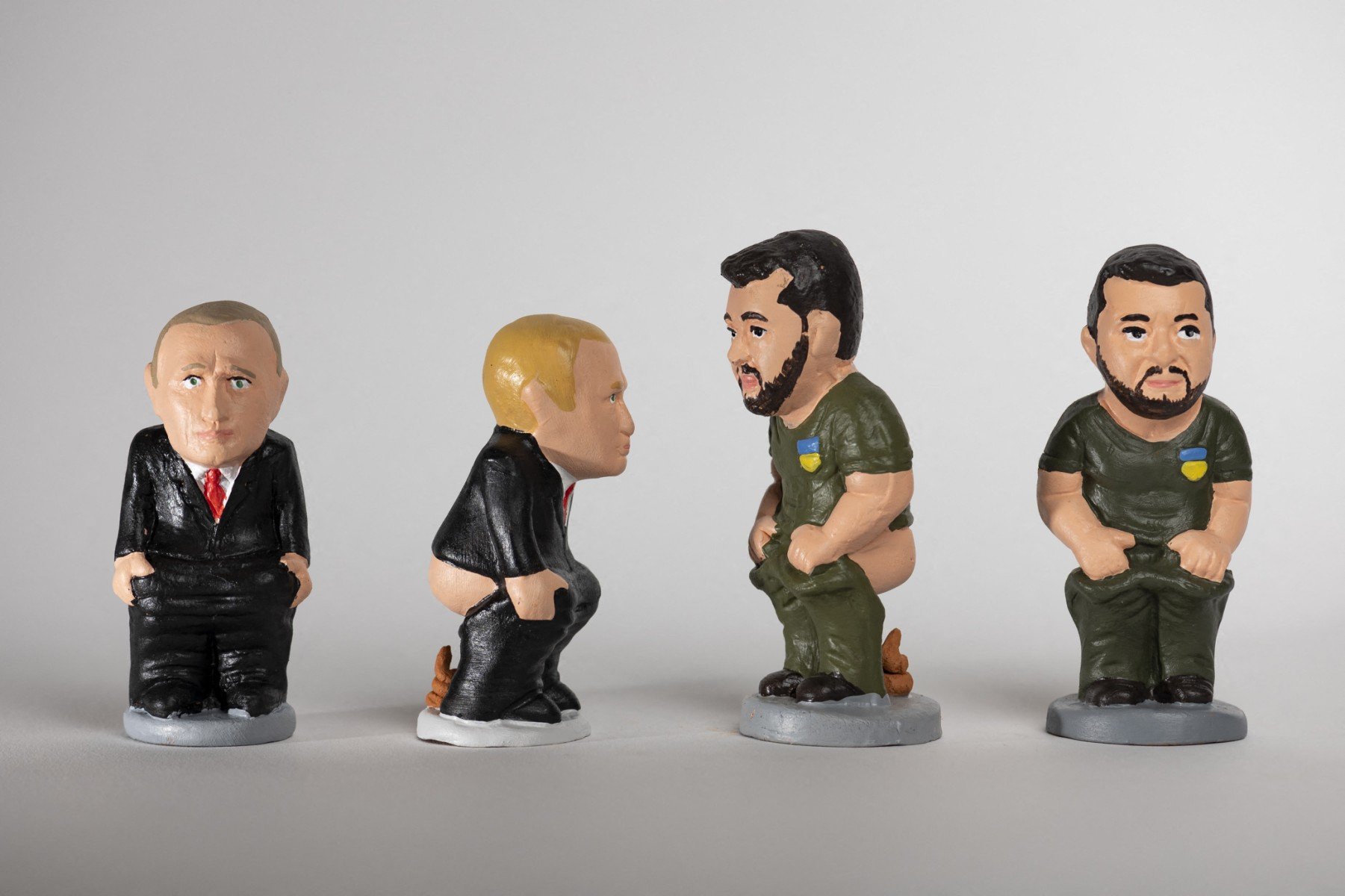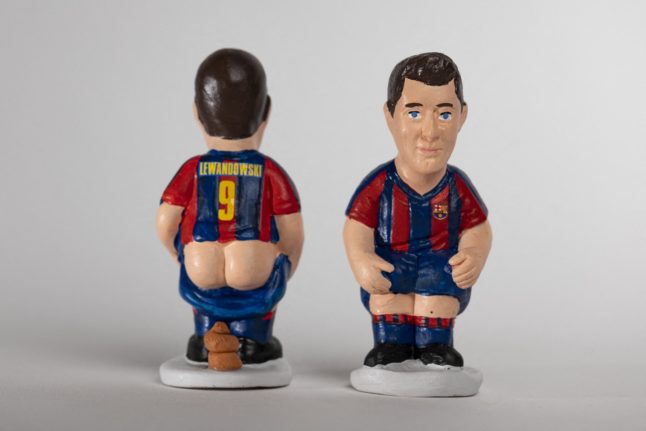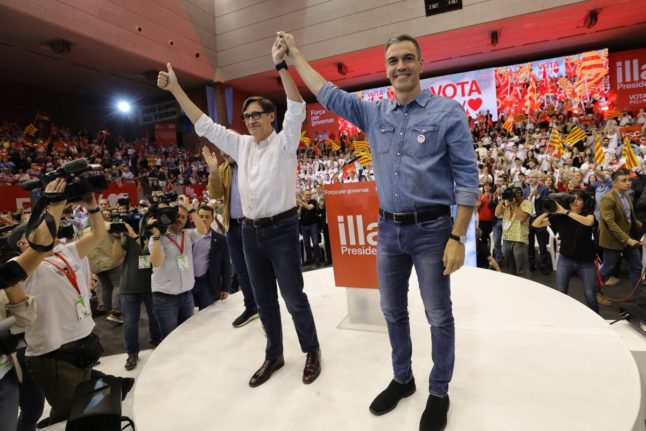The “caganer” — or “pooper” — figurine has long been a staple of Christmas in the northeastern region, usually placed in a discreet corner not far from Mary, Joseph and the baby Jesus.
The defecating statuettes are believed locally to bring prosperity for the coming year. They have become increasingly popular with tourists, especially in Barcelona, the region’s capital, where they are easily found in Christmas markets.
The traditional clay figure depicts a peasant or shepherd wearing black trousers, a white shirt and the classic red Catalan cap called the barretina.
But the tradition has expanded to include famous figures such as Chinese President Xi Jinping, former US president Donald Trump, singers such as Michael Jackson and athletes like Paris Saint-Germain star Kylian Mbappe.
READ ALSO: Why Spain’s Catalonia celebrates Christmas with someone having a poo
“It is very interesting. We are also very surprised to see they have all these figures, celebrities and also political figures. It’s definitely a new experience for us,” said Amy Hu, a 30-year-old tourist from the United States, as she browsed a selection of caganers in Barcelona.
One of the biggest caganer makers, family-run Caganer.com, currently sells 650 different models of the figures at its six shops in Barcelona and Madrid as well as online, where the United States accounts for the bulk of orders.

The company expects to sell 140,000 of the figures this year, which retail for €5 – €21 ($5-$23).
Sergi Alos, co-owner of the company founded by his mother in 1992, said the figures were a tribute, not a mockery. He said he was happy that tourists could “have something that is typically Catalan”.
‘An icon’
The roots of the caganer are vague but are generally thought to date from the 18th century.
The figurines aim to “connect the people to the mystery of the nativity”, said Josefina Roma, a retired University of Barcelona anthropology professor. She likened caganers to playful characters that appear in theological narratives to make them more understandable.
Xavier Borrell, the president of the 33-year-old Friends of the Caganer Association, which has around 100 members, said the figures “have gone beyond nativity scenes to become an icon”.
The retired engineer owns 1,400 caganers, the bulk of them classic figurines of peasants. He said he was delighted that the statuettes had become popular tourist
souvenirs in Catalonia, a wealthy region of around 7.7 million people that has its own distinct language.
“In Catalonia we sell Mexican sombreros, Sevillian dresses, images of bulls, which are not typical of our culture, and the fact that tourists who come here take a caganer with them pleases me a lot,” Borrell said.
Unusual gift
At Christmas markets across Catalonia, caganers rub shoulders with “tios”, a log with stick legs and a smiling face and red hat that is also a staple in many homes during the Christmas season.
Parents cover the log with a blanket and secretly place little gifts such as candies, nuts and small toys inside. On Christmas Eve, or in some households on Christmas Day, children hit the blanket-covered log with sticks while encouraging him to “defecate” gifts.
“It is a bit scatological,” Borrell said.
The log does not drop large gifts, which are traditionally considered to be brought by the Three Wise Men on January 6, the day of the Epiphany.



 Please whitelist us to continue reading.
Please whitelist us to continue reading.
Member comments